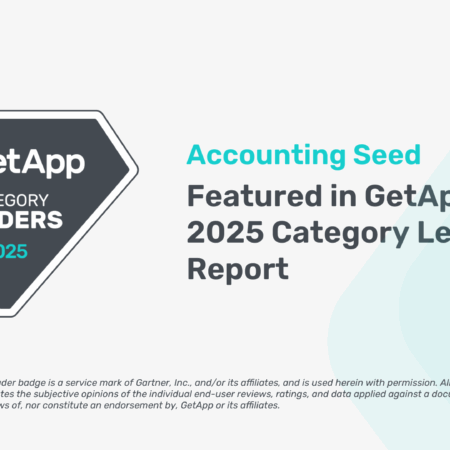
Back to Blog
See Accounting Seed in action
See how accounting on Salesforce can eliminate the need for costly integrations—and silos of mismatched information—by sharing the same database as your CRM.

When choosing an accounting system, it is important to take into consideration that there are several different types of accounting, and you will need to be able to do the type of accounting specific to your business. One type of accounting is Fund Accounting.
Fund accounting is a method of accounting used by nonprofits and government entities to track and report financial activity by separate funds, each with its own purpose, restrictions, and accountability requirements.
Fund accounting emphasizes accountability as opposed to profitability. It is used by non-profit and government organizations. In this type of nonprofit and government fund accounting, a fund is a self-balancing set of accounts. These must be segregated for specific purposes in accordance with laws and regulations. This is important for non-profits nonprofits and government organizations because they are required to show in their financial reports how the money was spent in conjunction with a committee or board approved allocation or budget of funds.
Fund accounting is essential for a wide range of nonprofit and mission-driven organizations. Each relies on tracking income and expenses by fund to ensure accountability and compliance.
Common types of fund-based organizations include:
Profit-oriented businesses will typically have one general ledger that balances in total, while companies using fund accounting Fund Accounting will typically have more than one set of self–balancing general accounts (ie, Funds) within the greater organization. An organization using fund accounting Fund Accounting typically will have to produce full financial statements such as a balance sheet, profit and loss, trial balance and statement of cash flows for each fund in the organization while a for–profit company will only need to do this for once for the entire organization.
Fund accounting is essential for nonprofits to maintain transparency, comply with regulations, and honor donor intent. Accounting Seed integrates seamlessly with fund accounting practices, offering robust tools to track, allocate, and report on funds with precision and ease. Being an accounting system built on top of a CRM, we combine powerful automation with flexible reporting to simplify financial management for mission-driven, grant-based organizations.
Accounting Seed allows nonprofits to track multiple funds or grants as separate General Ledger accounts or dimensions such as projects, departments, or custom fields.
This enables segmented financial reporting to ensure compliance with donor restrictions and grant guidelines.
Organizations can structure their Chart of Accounts to align with fund categories, including:
This structure supports the accurate allocation of income and expenses to specific funds.
Users can generate a statement of activities by fund to distinguish between:
The reporting enables audit-ready fund-level financials and FASB-combliant reporting.
All of this is accomplished through our fast and easy customizable reporting.
Nonprofits can tie donations and grants to specific projects and track spend-down over time.
This helps ensure accountability and prevents overspending on restricted programs.
With automation tools, you can allocate shared expenses (e.g., payroll or overhead) across multiple funds using predefined percentages or formulas.
Accounting Seed is a double-entry GAAP and IFRS-compliant system. Detailed audit trail features ensure transparency and compliance with GAAP and nonprofit accounting standards.
All journal entries, changes, and approvals are logged for accountability.
Since Accounting Seed is built natively on Salesforce, it also supports:
Accounting Seed enables nonprofits to track and manage multiple funds, such as grants, donor-restricted contributions, or board-designated funds, within a single accounting system. This removes the need for complex spreadsheets or manual reconciliations. Each transaction can be tagged to a specific fund, making it easy to monitor fund balances in real time.
Example: A nonprofit receives three grants from different foundations, each with unique spending rules. With Accounting Seed, each grant is tracked as a separate fund, allowing the organization to manage spending and reporting requirements effortlessly.
Organizations can generate customized reports by fund to show stakeholders how donations and grants are being used. This is especially useful for:
Example: When preparing a grant renewal application, the nonprofit can instantly generate a Statement of Activities showing how every dollar of the original grant was spent, broken down by program area and timeframe.
Transparent reporting builds trust. When donors and foundations see clear, accurate accounting for how their funds are used, they’re more likely to renew or increase support.
Example: A major donor contributes $100,000 to support a specific youth program. The nonprofit uses Accounting Seed to track the donation, allocate expenses, and report back quarterly with detailed use-of-funds statements, leading to a second, larger donation the following year.
See how accounting on Salesforce can eliminate the need for costly integrations—and silos of mismatched information—by sharing the same database as your CRM.


